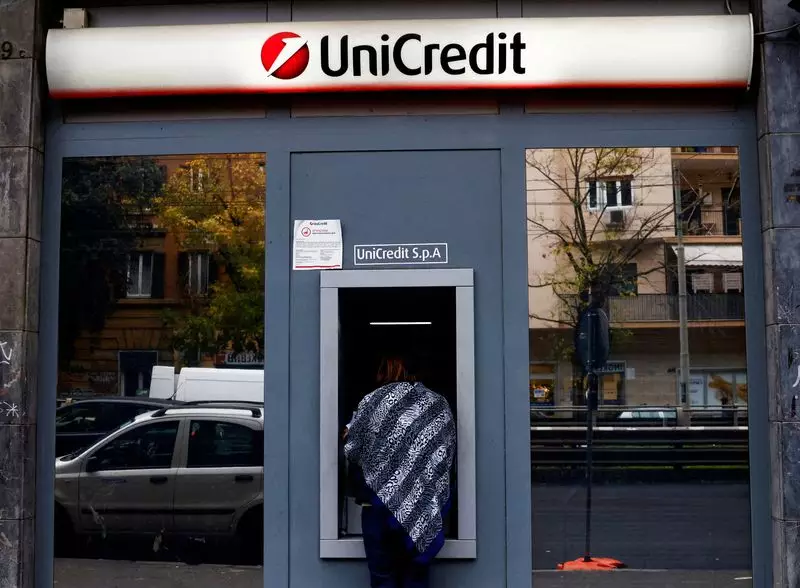The ongoing tug-of-war surrounding UniCredit’s increased stake in Commerzbank has stirred considerable tension between Italy and Germany. In a landscape marked by caution, expectations, and regulatory hurdles, this Italian bank’s strategic maneuvers have been met with a swift and strong backlash. As UniCredit raises its stake to 28% using complex financial instruments, German authorities express their disapproval, terming the approach as “uncoordinated and unfriendly.” This situation not only highlights the delicate interplay of power dynamics in European banking but also underscores the intricacies of corporate acquisitions, particularly in the context of national interests and economic sovereignty.
UniCredit’s acquisition strategy is particularly noteworthy due to its subtle yet effective use of derivatives to amass its stake. By converting derivatives into shares, UniCredit has managed to navigate around traditional acquisition thresholds, which, if breached, would necessitate a costly mandatory takeover bid. Nonetheless, this strategy has attracted scrutiny, reminiscent of past corporate raids that have raised alarms among national stakeholders. The aggressive pursuit of a larger influence over Commerzbank’s management by UniCredit positions it as a formidable player in the strategic decisions of Germany’s second-largest bank. The stakes have risen not just for UniCredit but also for the broader German financial ecosystem.
Andrea Orcel, the CEO of UniCredit, has strategically delayed any drastic actions until after Germany’s federal elections, signaling a deliberate attempt to wait for a more favorable regulatory climate. However, the burgeoning nature of his company’s investment in Commerzbank is already forcing the German establishment to react, revealing the precarious balance of power. Without sufficient legal frameworks to block UniCredit’s advances, and amidst prevailing opposition from the German elite, the underlying tensions reflect far more than mere corporate rivalry; they touch upon questions of economic nationalism and financial sovereignty.
The German government’s swift rebuke underscores the fraught nature of the situation. Officials have expressed their concerns about the manner in which UniCredit’s interests have crept in. The spokesperson’s assertion that the government is “working hard to find a good solution for Germany” illuminates the urgency surrounding the issue. This response not only sheds light on the political ramifications but also indicates a clear commitment to safeguarding national interests against what is perceived as an intrusive external investment strategy. Despite a backdrop of limited legal options to counter the takeover, Berlin’s rejection of UniCredit’s aggressive tactics paints a vivid picture of resistance against perceived financial imperialism.
The reluctance among German politicians to embrace measures that might facilitate a takeover reflects broader concerns about national control over key financial institutions. Commerzbank, historically significant to Germany’s banking landscape, embodies an economic heritage that many stakeholders are reluctant to share with a foreign entity, no matter how operationally adept it might be.
The market’s behavior further illustrates the complex dynamics at play. Following news of UniCredit’s stake increase, Commerzbank’s shares experienced a short-term uptick, suggesting confidence among investors regarding the bank’s financial health. However, with the increasing likelihood of a drawn-out confrontation between the two banks, uncertainty looms over the future stability of not only Commerzbank but the wider German banking sector.
Analyst Marco Troiano aptly identifies that as UniCredit bolsters its claim over Commerzbank, the pressure on the latter’s management will be tangible. Yet, with UniCredit positioning itself potentially as a passive investor or an active stakeholder aiming for consolidation, the strategic options for both banks become rather convoluted. It raises questions about the effectiveness of Commerzbank’s upcoming strategies and its capacity to thwart external pressures while remaining resilient in a turbulent marketplace.
As the European banking landscape continues to evolve, the saga of UniCredit and Commerzbank serves as a potent reminder of the complexities involved in cross-border banking operations. The strategic decisions made by Orcel and the subsequent reactions from German authorities encapsulate not only a battle for control and influence but also a larger commentary on the sovereignty versus globalization debate within the financial realm. The reactions and counteractions in this narrative not only highlight challenges faced by individual banks but also reflect the broader themes of nationalism, economic strategy, and regional stability in an increasingly interconnected economy. Whether symbiosis or conflict will define the future relationship between UniCredit and Commerzbank remains to be seen, but one thing is clear: this standoff is far from over.

